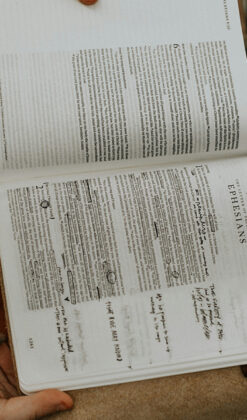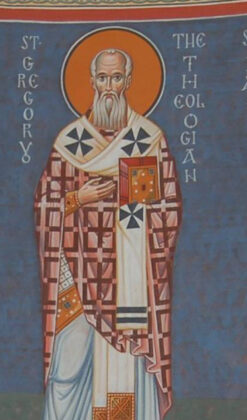A “mixed orientation marriage” is where one spouse is straight while the other opposite-sex spouse is attracted to the same sex. History has seen many such marriages end in much pain and confusion—especially if kids are involved. Given their destructive potential, mixed orientation marriages are rarely viewed as an option for people who are same-sex attracted (or gay).
However, I know two couples who are in such marriages. And though they have their unique struggles, they also have experienced many blessings in marriage. I want to interview both of these couples, beginning with my friends Nate and Sara Collins
PS: Thanks, Nate and Sara, for being willing to answer some questions on my blog! Sara, I’d first love to hear from you. What did you think when you first found out that Nate experiences same-sex attraction?
Nate told me about his same-sex attractions about three months after we started dating, and I remember telling him that I was surprised, but not surprised at the same time. It wasn’t something I had expected to hear from him, but I knew that all of us, myself included, have life experiences that present unique challenges. Everybody has a story, and this was his. I also had a lot of questions and fear, but I knew that I was already in love with him, and hearing about his same-sex attractions didn’t change the fact that I still wanted to be with him.
PS: Nate, how would you describe your attraction to Sara before you two were married? I remember you telling me that your attractions to your wife underwent some changes before you were actually married. Can you expand on that?
When Sara and I first started dating, I really only felt the beginnings of romantic interest in her. We had been good friends for over a year, so I already knew that I enjoyed being around her and that she was an amazing person. As we grew more intimate, first emotionally as we shared our hopes and dreams with each other, then spiritually, and then eventually physically, the seed of initial attraction I felt towards her steadily grew. When it became clear to me that we were heading in the direction of marriage, I was scared but also excited, because I sensed that God was also uniquely preparing both of us for that moment. By the time we were married, I hadn’t become “straight” because I still experienced same-sex attractions. At the same time, a “one-woman” orientation had been developing within me during my relationship with Sara, so marrying her felt like the most natural thing to do, and what my heart had in fact grown to long for. (Also, this might be a good place to say that I don’t identify as bisexual because I’ve never felt attracted to any other woman besides Sara, and honestly can’t even imagine what that would be like.)
PS: Why did you both proceed to get married? What were some of your fears and some of your hopes and expectations?
Nate: I honestly don’t think our answer to the first question would be much different from the answer of a straight man and woman who decide to get married. By the time we had dated for about six months, I knew that I was in love with Sara, that I wanted to spend the rest of my life with her, and that I couldn’t imagine life otherwise.
Sara: I knew that Nate was physically attracted to me by the time we got married, so some of the fears I had had before then had already begun to go away. Besides that, like any other young couple in love we had hopes and dreams of raising a family together and flourishing wherever God placed us.
PS: Looking back now on ten years of marriage, what have been the greatest challenges that you’d be willing to share?
Before we got married, I (Sara) remember reading something about mixed orientation marriages that said that in many ways, these marriages encounter the same general kinds of problems as two straight married people have. Over the past ten years we’ve actually found this to be true. We’ve definitely gone through seasons of conflict, but we’ve seen other couples go through similar hard times.
PS: And what are some unexpected joys that you’ve experienced?
Nate: I grew up constantly praying for God to take away my same-sex attractions so I could be “normal.” But that outlook seems so foreign today. Perhaps it’s because the same-sex attractions have been there so long that I don’t expect them to ever leave, but I think it’s also because I’ve experienced so much joy in being fully known and loved by Sara for who I am. Knowing that I’m God’s man for her and for our boys has been amazing, and a source of enormous peace and comfort to fall back on when times are hard and life gets stressful.
Sara: I feel like our marital friendship has only grown deeper over the years, and that makes me feel really happy and blessed. We’ve gone through difficult times like most couples, but they’ve actually strengthened our relationship and made us grow closer together.
PS: I’d love to hear from both of you whether you would recommend a mixed orientation marriage to others. Or what type of people could enjoy such a marriage, and what type of people would you not recommend it to?
It’s kinda hard to answer this question. First of all, many LGBT people really don’t have any desire to pursue a mixed orientation marriage, and there really should be nothing strange about that. We got married for the simple reason that we were in love, but we know that this path probably isn’t one many LGBT people will take, so nobody should use our story to prescribe an opposite-sex marriage for all LGBT Christians. Second, although we’re quite happy with our marriage, we know that lots of families have been torn apart because one of the spouses wasn’t up-front and honest with the other about his or her orientation. When trust is broken, it’s very often impossible to restore good communication, and we don’t want to minimize how painful and impossible this reality seems in these situations. At the same time, we think that with humility, honestly, support (not only within the marriage, but also drawn from close, same-sex friendships outside the marriage), and consistent communication — all good things for any marriage! — mixed orientation marriage should be reconsidered as a beautiful and viable vocation for non-straight people. It won’t be for many, and that’s fine, but it may be for some. A non-straight orientation can make things somewhat more challenging, but not impossibly so, and not without also contributing some of its own joys. As long as the same-sex attracted individual truly loves the opposite sex partner, and neither of them are expecting marriage to be a “silver bullet” solution… because it won’t!
PS: Thanks so much for your time and authenticity! Go ahead and leave us with some closing thoughts.
Thanks for giving us this opportunity to share our story! We’re grateful to God for giving us each other, and allowing our marriage to be something that encourages and strengthens both of us. But it’s also important to remember that while marriage can be wonderful, it’s a temporary covenant that ends at death. Moreover, God has designed ALL of us, married or single, LGBT or straight, with a deep and profound need to be in loving, intimate relationship with others. It’s possible, and even likely, that the majority of LGBT Christians will have no desire to be in an opposite-sex marriage. If this is the case, then married people have a tremendous responsibility and opportunity not only to extend community to them and to support and honor them in their unique calling, but also to receive community from them as co-partakers of life within the family of God.
.











